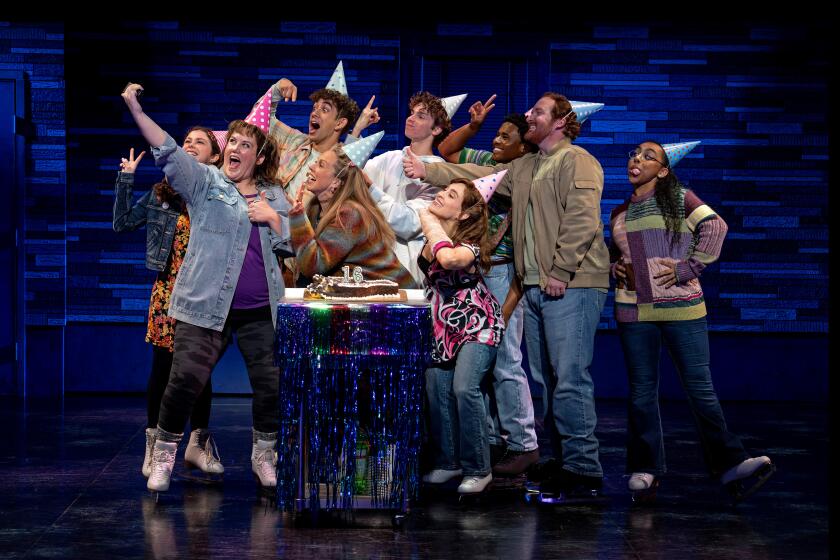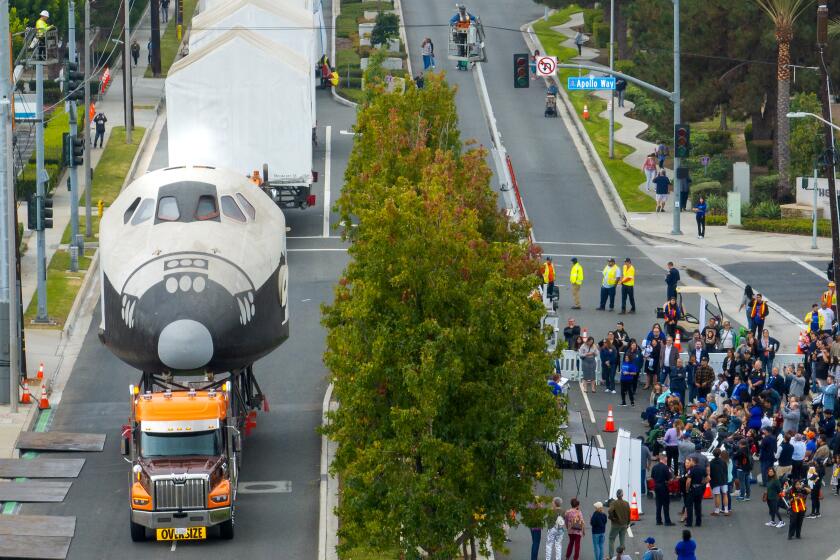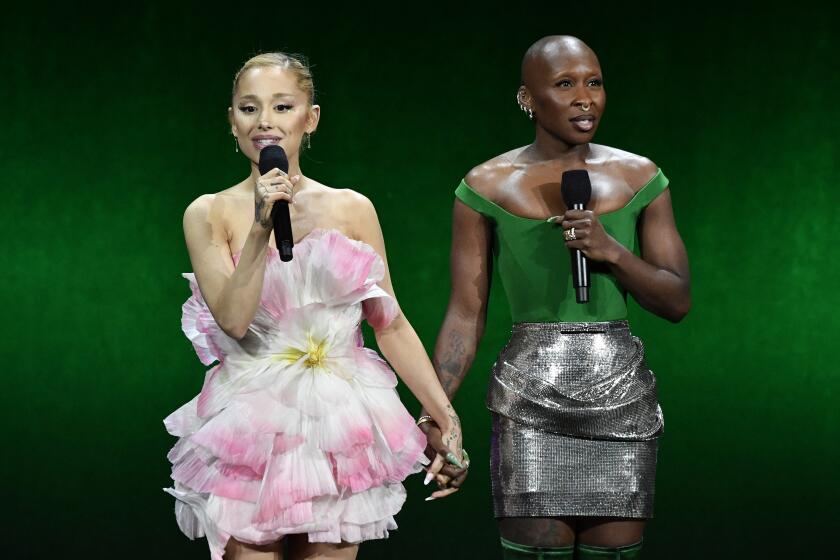MUSIC REVIEW : A Charmed Mozart Festival
The concert fairy came to the Mainly Mozart Festival openingat the Spreckels Theatre on Saturday night. She generously granted wishes.
The music making of a well-chosen group of professionals, under music director David Atherton, was essentially flawless. A quiet and considerate audience allowed the sound to bind its spells. And moments of passion and high-spirited performing gave the program of Mozart and Beethoven compositions a fresh, even playful, vivaciousness.
The Mainly Mozart Festival has worked hard for four years to make its annual springtime concert series inviting. It has relied on marketing hype, yuppie superficiality and classical music’s expected aristocratic-style trappings.
This year’s opening-night experience, except for an intrusive, traffic-blocking auto dealership promotion, left off pretension and ostentation. The convincing efforts of musicians on stage were the attraction, giving the musical pieces, no matter how familiar or intellectually unchallenging, an undistracted opportunity for eloquence. Another wish granted.
The concert’s peak moments included the performance by Canadian-born Jon Kimura Parker of Beethoven’s Piano Concerto No. 2 in B-flat Major.
Doggedly hunching over the keyboard, Parker delivered this early Beethoven work with warmth and assured musicality. His fleet, hot-potato touch did not incline toward a mechanistic bravura, nor did his deliberate braking of tempi drag into soggy dolorousness for expressive effect.
He took care to sculpt the piano’s voice, to deftly shade the solo dynamics, to play the silences and allow notes and harmonics to sparkle.
The violin section watched with alarm and bemusement as Parker sweated through, literally, the first-movement cadenza. This wink-wink inside joking among the Mainly Mozart players hasn’t diminished in four years, and it isn’t altogether unwelcome. Despite its transcendental evocations, music making is an earthbound, human enterprise, plagued with potential stumbles, miscalculations, fevered detachments, indulgences and, of course, artistic victories. They were pulling for their colleague--were with him, showing the kind of communality that brings chamber musicians together in the first place.
The musicians, for the most part, are festival regulars. They seem to work together with an easy camaraderie under concertmaster William Preucil.
Preucil performed as soloist for Beethoven’s Romance No. 2 for violin and orchestra and gave the piece a labored edge. The overt lyricism of the violin projected well without compromise, however.
Preucil is a fascinating violinist to watch, because his performance style is physically dramatic, with movements akin to a subtle, spontaneous dancing. The music one hears, however, is tightly articulated, as if he uses his body to release any excess expressiveness that might overwhelm a measured and fluid execution of notes.
Three Mozart works balanced the Beethoven. A whiff of a contradance (the festival will include a dozen contradances by Mozart) was followed by a brief Mozart symphony (K. 196 and 121), which includes, as two of the three movements, the overture to his 1774 opera, “La Finta Giardiniera.”
The orchestra’s playing was attentive, with clean attacks and an overall undiminished enthusiasm. This combined esprit and focus held throughout the concert through the final notes of Mozart’s G Minor symphony, the program’s closing masterwork.
Atherton’s bulldogish conducting returned an appropriate intensity--sometimes gutsy and freewheeling, sometimes with a constricted force, which when released, passed like electric jolts. An undiluted Mozart, untrivialized, and given every moment of inherent power--a pleasure. The festival continues through Sunday at the Spreckels Theatre.
More to Read
The biggest entertainment stories
Get our big stories about Hollywood, film, television, music, arts, culture and more right in your inbox as soon as they publish.
You may occasionally receive promotional content from the Los Angeles Times.










